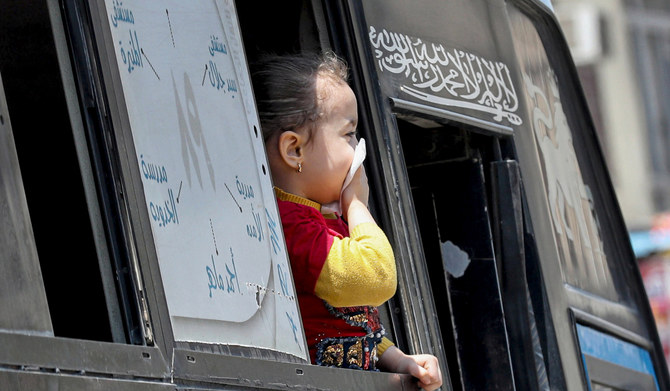
- ARAB NEWS
- 30 Jun 2025

CAIRO: The Egyptian Ministry of Health and Population recently sent a circular to the directorates of health affairs, explaining how to diagnose the new COVID variant JN.1.
The WHO listed JN.1 as a separate “variant of interest” this week.
A source from the ministry told Arab News: “The circular included a definition of the new COVID variant, which mainly affects the upper respiratory system, causing mild symptoms (that do not differ) from other Omicron variant strains.”
The source, who asked to remain anonymous, clarified: “The symptoms … include fever, cough, earache, runny nose, muscle aches, throat congestion, and a cold. The symptoms may vary in duration from one person to another, and some people may experience loss of smell and taste.”
Dr. Hossam Hosny, head of the Scientific Committee for Coronavirus Control at the ministry, said in a press release: “The current treatment protocol for COVID can treat infections caused by the new COVID variant.”
So far, according to the press release, no cases of the JN.1 variant have been detected in Egypt.
The doctor continued: “Central laboratories have been equipped with reagents for detecting the new variant, and a description of its symptoms has been sent to the health affairs directorates to facilitate its diagnosis. Chest hospitals across the country provide the treatment protocol for free.
“We cannot say that major waves of COVID infections are returning, but the new variant is highly contagious and can infect even those who have been vaccinated.”
Dr. Zayed Jamal, a member of Egypt’s Coronavirus Control Committee, told Arab News: “Precautions have been heightened at airports and ports to screen incoming travelers for symptoms of the new variant.
“Most cases of infection with this variant are mild, but it’s better to avoid participating in gatherings if you are sick,” he continued, adding that the expected public-health risk posed by JN.1 is similar to that of the previous Omicron variant.
Jamal stressed that “all departments of the ministry are prepared for any emergencies,” and said the Health Ministry and the WHO are coordinating “at the highest levels” to keep abreast of the situation.